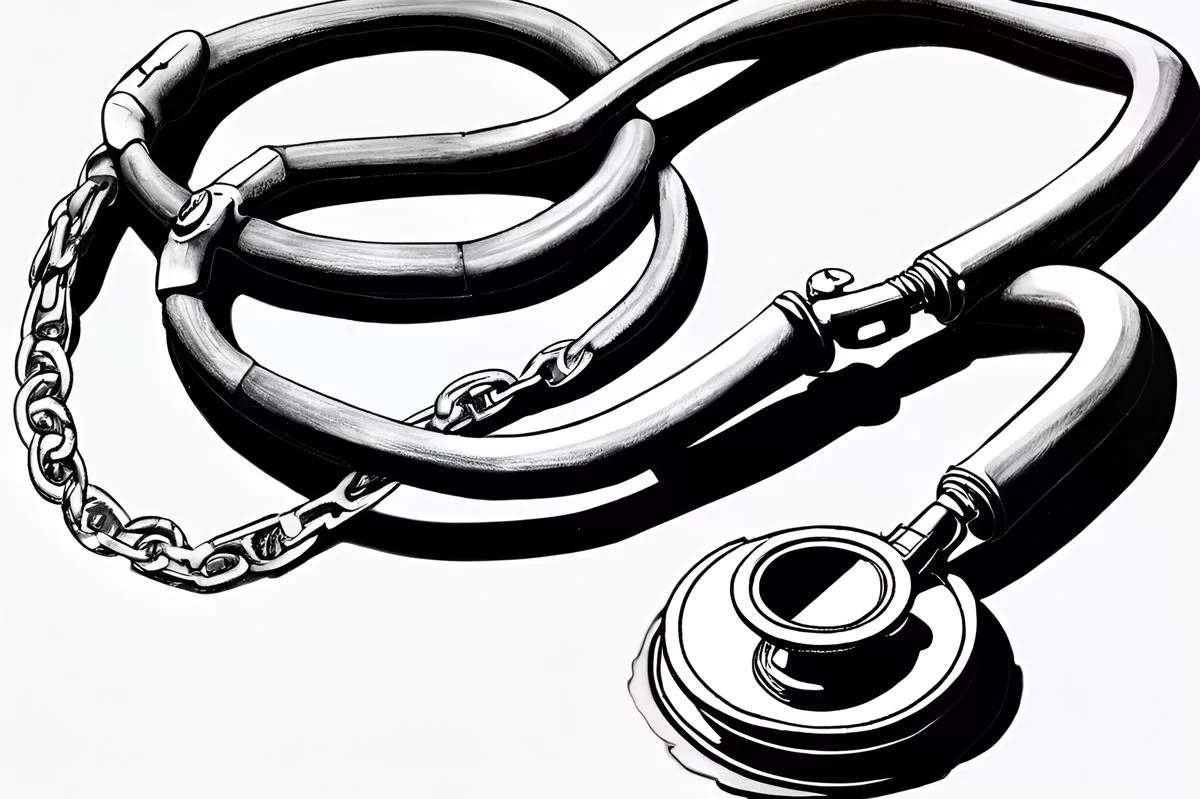South Africa is facing a pressing need to counteract fraud in its public sectors, particularly in health and justice. The Special Investigating Unit revealed probable losses of R3 billion due to fraudulent medico-legal claims, exposing systematic weaknesses within the state’s domains. The Standing Committee on Public Accounts has called for system-wide interventions, including the introduction of a due diligence checklist in the Department of Health and the Office of State Attorney. This is a crucial turning point in South Africa’s battle against fraud and collaboration, highlighting the urgent need for systematic change.
South Africa’s Pressing Need to Counteract Fraud in Public Sectors
The Special Investigating Unit’s disclosure of probable losses amounting to R3 billion due to fraudulent medico-legal claims has raised concerns about systematic weaknesses within South Africa’s public domains. SCOPA calls for system-wide interventions to stifle the initiation and triumph of fraudulent claims. The introduction of a thorough vetting checklist in the Department of Health and the Office of State Attorney could effectively sift out these claims at an early stage and significantly reduce legal expenses and contingent financial obligations. This is a pivotal moment in South Africa’s battle against fraud and collaboration, emphasizing the vital need for systematic change.
In a period riddled with rising fraud and collaboration, the Standing Committee on Public Accounts (SCOPA) has raised a renewed appeal to address systematic weaknesses within South Africa’s public domains, particularly in the fields of health and justice. There is an increasing urgency to implement solid systems and internal controls, especially to protect state health centres and susceptible patients against dishonest law firms that continue to be a deeply ingrained problem.
At the core of this issue is the Special Investigating Unit’s (SIU) disclosure of probable losses amounting to R3 billion due to fraudulent medico-legal claims. The SIU shed light on this unsettling revelation during a briefing, sparking a sequence of investigations into all nine provincial health departments.
The Magnitude of Deception and Manipulation
The claims under examination illuminate the extent of deception and manipulation involved. Such claims vary, from the targeted exploitation of families with cerebral palsy children to falsified allegations of medical malpractice in state hospitals. There is also the planned collusion between state healthcare workers and unethical lawyers. The latter violates privacy by unlawfully procuring private medical records to lodge claims against the government. More overt fraudulence can be seen where agents of rogue law firms, impersonating officials of the South African Social Security Agency (SASSA), deceptively acquire power of attorney on behalf of victims under the pretense of securing social grants.
SCOPA’s Chairperson, Songezo Zibi, underscored the importance of system-wide interventions to stifle the initiation and triumph of fraudulent claims. For example, there are instances where claims have been pursued post the plaintiff’s death, based on the concept of ‘loss of future income’. Another recurring strategy is the simultaneous filing of the identical claim in two separate divisions of the High Court, often slipping through unnoticed.
Implementing a Due Diligence Checklist
The introduction of a thorough vetting checklist in the Department of Health and the Office of State Attorney could effectively sift out these claims at an early stage. As highlighted by Mr. Zibi, this strategy could significantly reduce legal expenses and contingent financial obligations.
The SIU also exposed several cross-provincial issues, such as the misappropriation of payouts and trust funds, the lack of electronic case-line systems, and the ineffectiveness of the Legal Practitioners Fidelity Fund in conducting prompt investigations and reimbursements to claimants. This latter issue has led many deserving claimants to be left languishing in poverty.
Although SCOPA recognizes many legitimate claims, the fraudulent nature of most is evident considering the drastic decline in the number of claims following the initiation of the SIU’s investigation.
Acknowledging the SIU’s Pursuit
The committee commends the SIU for its relentless pursuit of these medico-legal cases and the individuals involved in these fraudulent activities. The committee also proactively seeks additional information from the SIU regarding the individuals implicated in these cases.
In a step towards enhanced transparency and collaboration, a combined meeting with the Portfolio Committee on Health and the Standing Committee on Appropriations is scheduled for 11 September 2024. The meeting’s agenda includes discussions on the medico-legal claims and investigations with the Department of Health.
A Crucial Turning Point
This pivotal moment in South Africa’s battle against fraud and collaboration emphasizes the vital need for systematic change. SCOPA’s call for strong controls and systems is not merely timely, but necessary, as the state endeavors to safeguard its resources and defend its most vulnerable citizens.
What is the Special Investigating Unit’s (SIU) disclosure regarding medico-legal claims?
The SIU has disclosed probable losses amounting to R3 billion due to fraudulent medico-legal claims, exposing systematic weaknesses within South Africa’s public domains, particularly in health and justice.
What is the Standing Committee on Public Accounts (SCOPA) calling for?
SCOPA is calling for system-wide interventions, including the introduction of a due diligence checklist in the Department of Health and the Office of State Attorney, to counteract fraud and collaboration within South Africa’s public sectors.
What are some examples of fraudulent medico-legal claims?
Fraudulent medico-legal claims include the targeted exploitation of families with cerebral palsy children, falsified allegations of medical malpractice in state hospitals, and planned collusion between state healthcare workers and unethical lawyers.
What is the significance of implementing a due diligence checklist?
The introduction of a thorough vetting checklist in the Department of Health and the Office of State Attorney could effectively sift out fraudulent claims at an early stage, significantly reduce legal expenses and contingent financial obligations, and safeguard state health centers and susceptible patients.
What is SCOPA’s stance on legitimate medico-legal claims?
Although SCOPA recognizes many legitimate claims, it highlights the fraudulent nature of most medico-legal claims, evident by the drastic decline in the number of claims following the initiation of the SIU’s investigation.
What is the significance of this turning point in South Africa’s battle against fraud and collaboration?
This pivotal moment emphasizes the vital need for systematic change, as the state endeavors to safeguard its resources and defend its most vulnerable citizens.












